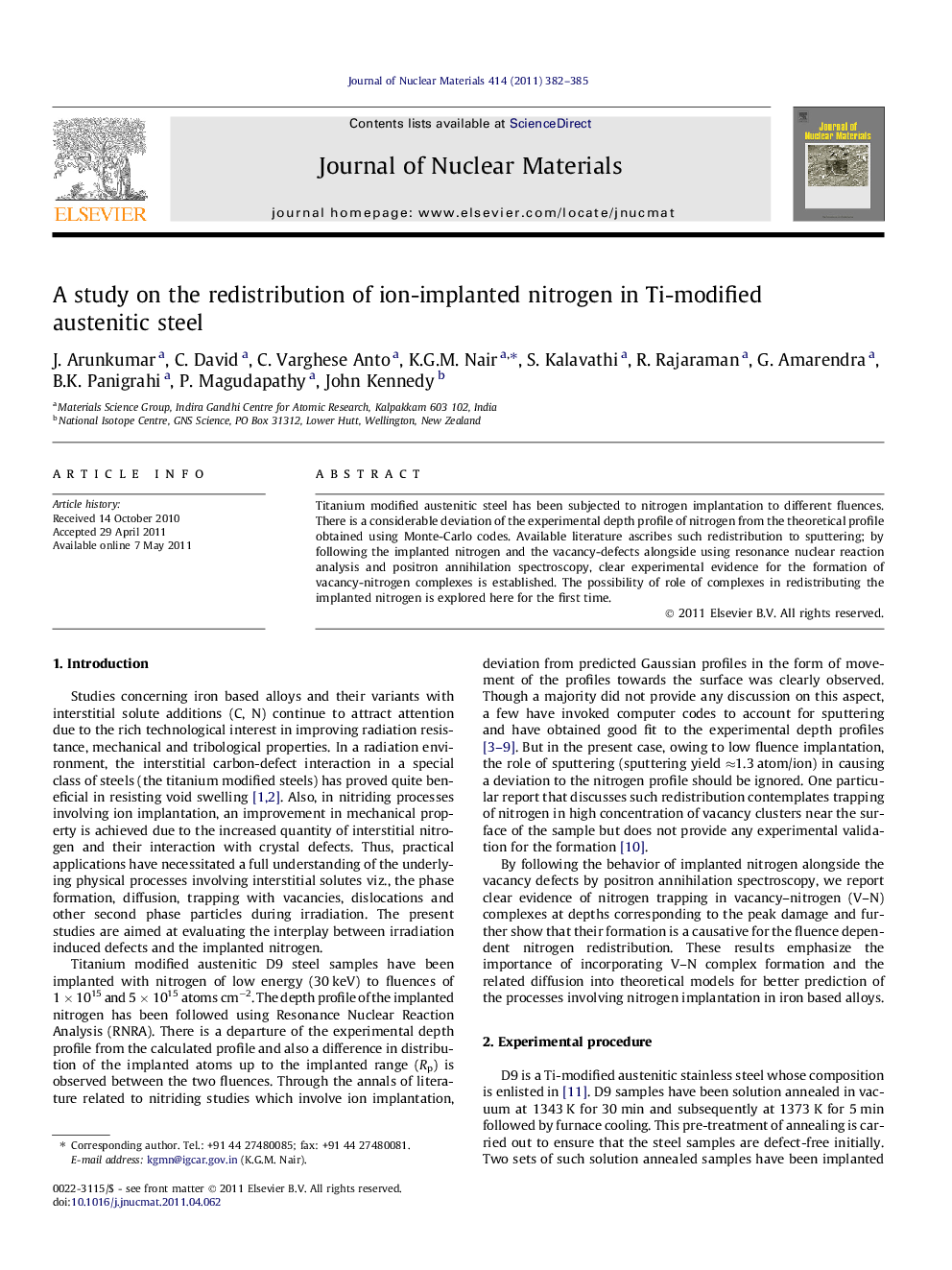| Article ID | Journal | Published Year | Pages | File Type |
|---|---|---|---|---|
| 1566788 | Journal of Nuclear Materials | 2011 | 4 Pages |
Abstract
Titanium modified austenitic steel has been subjected to nitrogen implantation to different fluences. There is a considerable deviation of the experimental depth profile of nitrogen from the theoretical profile obtained using Monte-Carlo codes. Available literature ascribes such redistribution to sputtering; by following the implanted nitrogen and the vacancy-defects alongside using resonance nuclear reaction analysis and positron annihilation spectroscopy, clear experimental evidence for the formation of vacancy-nitrogen complexes is established. The possibility of role of complexes in redistributing the implanted nitrogen is explored here for the first time.
Related Topics
Physical Sciences and Engineering
Energy
Nuclear Energy and Engineering
Authors
J. Arunkumar, C. David, C. Varghese Anto, K.G.M. Nair, S. Kalavathi, R. Rajaraman, G. Amarendra, B.K. Panigrahi, P. Magudapathy, John Kennedy,
